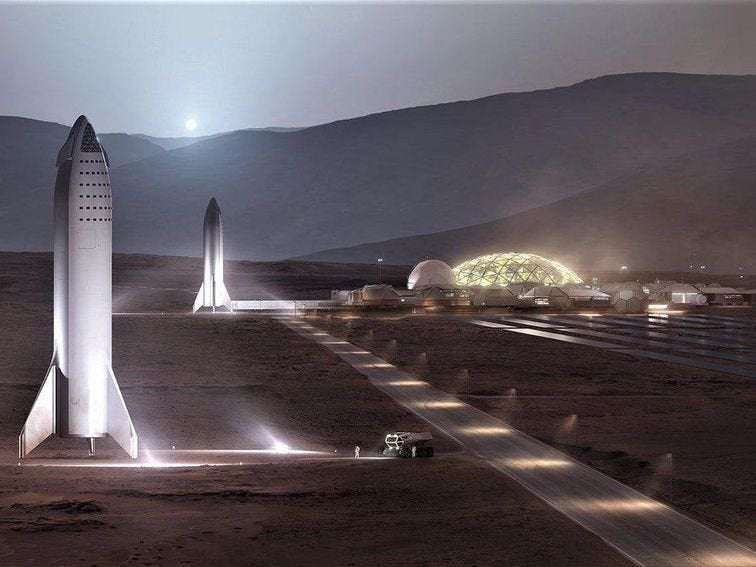When SpaceX founder Elon Musk gets on a Twitter roll, it can be hard to keep up. One moment, he's suggesting we nuke Mars to speed up Red Planet warming for colonists, the next he's pondering solar reflector satellites.
While nuking Mars is the more eye-catching notion, there's some pretty intriguing science behind the concept of orbital Mars mirrors.
Let's turn back the clock to 2006 when University of Arizona undergrad Rigel Woida won a NASA prize to study "the use of large aperture, lightweight orbital mirrors for 'terraforming' an area of the martian surface so humans could affordably colonize the Red Planet."
It's a sci-fi dream to find a way to make Mars more habitable for human life. Mars can get viciously cold and would require significant investments in creating safe habitats and space suits that can handle the extreme temperatures. Wouldn't it be nice if we could just heat it up a bit?
Now playing: Watch this: NASA's Mars helicopter passes flight tests
Musk didn't specifically call out Woida's research, but the work ties directly into the reflector concept. Woida published a report in 2007 (PDF link) detailing how a system like this might function. The idea would be to place a series of satellites in orbit that would strategically reflect the sun's warmth down onto the surface of Mars.
"Might make sense to have thousands of solar reflector satellites to warm Mars vs artificial suns," Musk tweeted on Tuesday, suggesting that the best option is still "to be determined."
Might make sense to have thousands of solar reflector satellites 🛰 to warm Mars vs artificial suns (tbd) — Elon Musk (@elonmusk) August 20, 2019
Musk also took a moment to clarify what he means by "nuke Mars," saying it "refers to a continuous stream of very low fallout nuclear fusion explosions above the atmosphere to create artificial suns. Much like our sun, this would not cause Mars to become radioactive."
Nuke Mars refers to a continuous stream of very low fallout nuclear fusion explosions above the atmosphere to create artificial suns. Much like our sun, this would not cause Mars to become radioactive. — Elon Musk (@elonmusk) August 20, 2019
NASA, however, isn't so sure of this nuking plan. In mid-2018, the space agency said Mars terraforming isn't possible using present-day technology.
Woida concluded in his paper that the reflector concept was feasible and "the engineering requirements needed to complete the heating of a small portion of Mars are attainable."
Musk and SpaceX are getting plenty of practice with satellites around Earth thanks to the Starlink broadband system. Perhaps Musk will turn some of SpaceX's resources toward Mars mirrors as the company's next-generation Starship moves ever closer to launch. Musk hopes to one day colonize the Red Planet.
It sure would be nice to have to pack some sun hats and tank tops if humans ever move to Mars.

TheFuzzball on August 21st, 2019 at 07:49 UTC »
It sounds like Elon has just gotten around to reading Red Mars.
sam__izdat on August 21st, 2019 at 06:10 UTC »
/r/space -- for the latest in what elon musk idly "ponders" while taking a shit with his cell phone
Zachman97 on August 21st, 2019 at 04:58 UTC »
I understand we haven’t found life there yet but wouldn’t that potentially kill off anything we haven’t found yet?